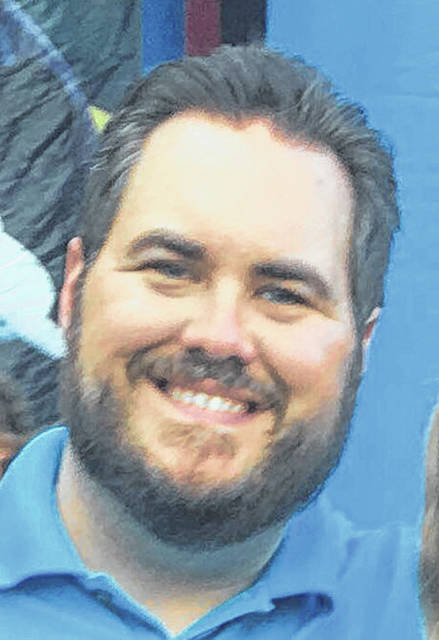
On May 11, 2004, Dr. Steven Kurtz’s wife died of a heart attack.
Dr. Kurtz was a professor at the University of Buffalo who also dabbled in unique art exhibits involving the display of bacteria. At the time of his wife’s death, Dr. Kurtz had been working on a project regarding particular strains of genetically modified bacteria used in common store-bought food. His exhibit was to be displayed at the Massachusetts Museum of Contemporary Art.
When police and paramedics responded to the 911 call about his wife’s heart attack, they found Dr. Kurtz’s home office containing several Petri dishes and various pieces of lab equipment related to his upcoming exhibit.
Dr. Kurtz’s wife died before the authorities arrived at his home. Having no expertise in science, the police spent the remainder of the day questioning Dr. Kurtz about the contents of his home. The following day as Dr. Kurtz was leaving a funeral home where he had begun to make arrangements for his wife, four FBI vehicles surrounded him in the parking lot, and he was arrested upon suspicion of bioterrorism.
While Dr. Kurtz was being detained, the FBI ransacked his home. A week later, Dr. Kurtz was allowed back into his house where he found mounds of detritus including used chemical test kits, discarded hazmat suits, stacks of pizza boxes and a pile of empty bottles of sports drinks. Much of his personal property had been taken.
Shockingly, the government even seized the body of his dead wife.
The investigation dragged on for nearly two months, but while the entire affair was offensive to Dr. Kurtz, he was not very worried about being charged with bioterrorism. The bacteria in his home was completely harmless. That was, in fact, the whole point of his art exhibit. Dr. Kurtz wanted to demystify and help to curtail the inappropriate fear of genetically modified bacteria found in food. As one leading biochemist ultimately testified, “there are likely more dangerous organisms found on the cheese in your refrigerator” than were used in Dr. Kurtz’s exhibit.
Unfortunately, when the government’s investigation of bioterrorism came up empty, it decided to pursue an indictment against Dr. Kurtz and a colleague, Dr. Robert Ferrell of the University of Pittsburgh, on charges of mail fraud and wire fraud.
The government alleged that Dr. Kurtz had used Dr. Ferrell to purchase bacteria for his art exhibit fraudulently. Dr. Ferrell purchased the bacteria from an academic supplier, and Dr. Ferrell’s contract stated that the bacteria was not to be transferred to anyone else. Because Dr. Kurtz and Dr. Ferrell had discussed the purchase by email, and the bacteria had shipped by ordinary mail, the government alleged that a crime had been committed due to their alleged conspiracy to breach Dr. Ferrell’s contract and defraud the academic supplier. For this alleged crime the government sought to imprison both professors for up to twenty years and fine them each up to one million dollars.
Drs. Kurtz and Ferrell vowed to fight the absurd charges, and both of their universities along with many of their colleagues raised a substantial legal fund to aid in their defense. Even so, the prosecution ultimately proved too much for Dr. Ferrell. Three years into the prosecution, Dr. Ferrell had suffered a stroke. That along with a previous diagnosis of Non-Hodgkin’s Lymphoma led Dr. Ferrell to ask his attorney to seek a plea bargain from the federal prosecutors so he could be done with the whole affair. Dr. Ferrell pleaded guilty to a single misdemeanor count related to mailing the bacteria. He was sentenced to one year of unsupervised probation and ordered to pay a $500 fine. At sentencing, the judge almost apologetically explained that the sentence was “the most lenient” he could give.
Dr. Kurtz continued to fight the charges and in 2008, a full four years after his wife’s death, he prevailed. All charges against him were thrown out by the court. However, the victory was bittersweet. He had been denied the opportunity to properly mourn his wife. His defense had cost him more than six figures in personal expense. His research had been stymied, and the criminal charges against him had sent repercussions throughout the scientific community.
Many researchers sent letters to the prosecutors during the four-year prosecution. Most were anonymous due to fear that they too might be charged criminally.
One missive stated, “You are interfering with my work on finding the cause of a cancer because of your prosecution.”
Another noted that the prosecution had stymied many American labs’ efforts to recruit foreign scientists due to fear of arrest for ordinary research practices.
A letter which identified the author only as a prominent scientist employed by the government stated that the actions which formed the basis of the charges occur every day throughout the scientific community, and that basic research would grind to a halt throughout the nation if colleagues were not allowed to procure and mail bacterial samples to one another.
Nevertheless, because the criminal statutes had been worded so broadly so as to allow for a criminal prosecution of what was essentially a breach of contract, the government continued to pursue its case through to its bitter end.
Most defendants who face such serious charges accept plea bargains to avoid the risk of lengthy prison sentences. Very few individuals have the stamina or resources that Dr. Kurtz had to fight the charges. Your government has unlimited resources which go right along with its unlimited fatuousness. If you find yourself in the crosshairs of an unjust prosecution, pray that your case ends up as an exception which proves the rule.
Finally, as a continuation of my efforts to inform on more of the absurd laws of our nation, please be aware that it is a federal crime to sell wine with a brand name which includes the word “zombie.” 27 U.S.C. §207, §205(e) & 27 C.F.R. §4.39(a)(9).
John Judkins is a Greenfield attorney.


